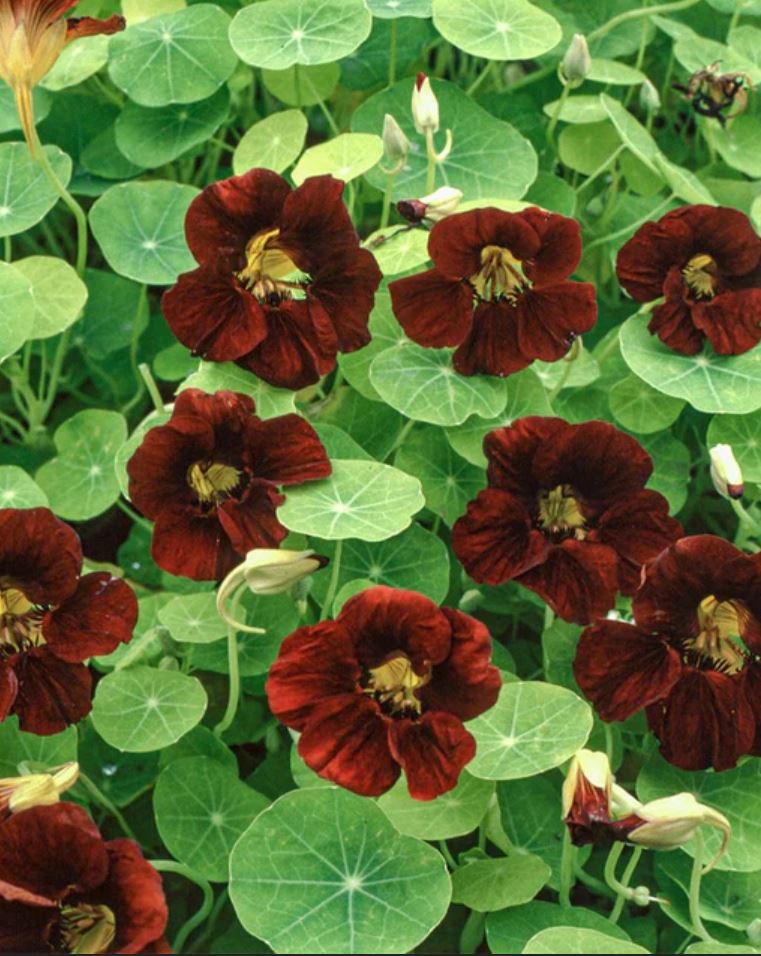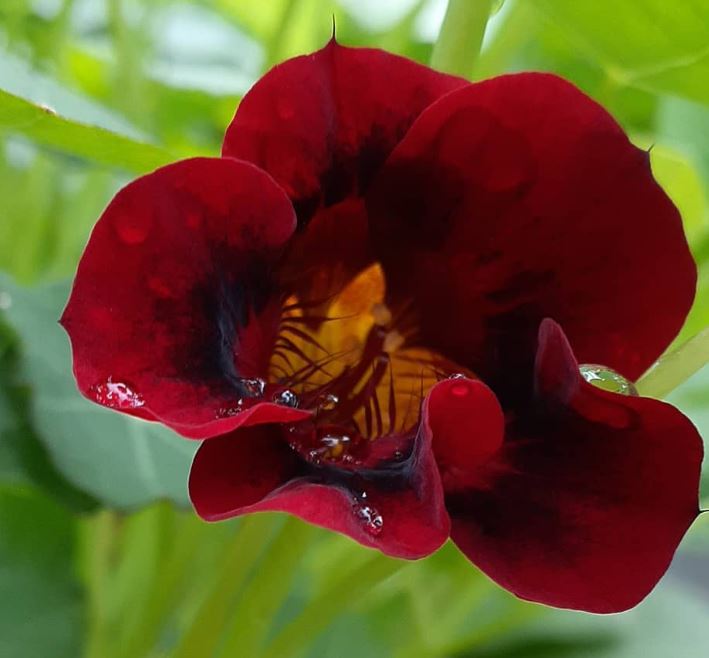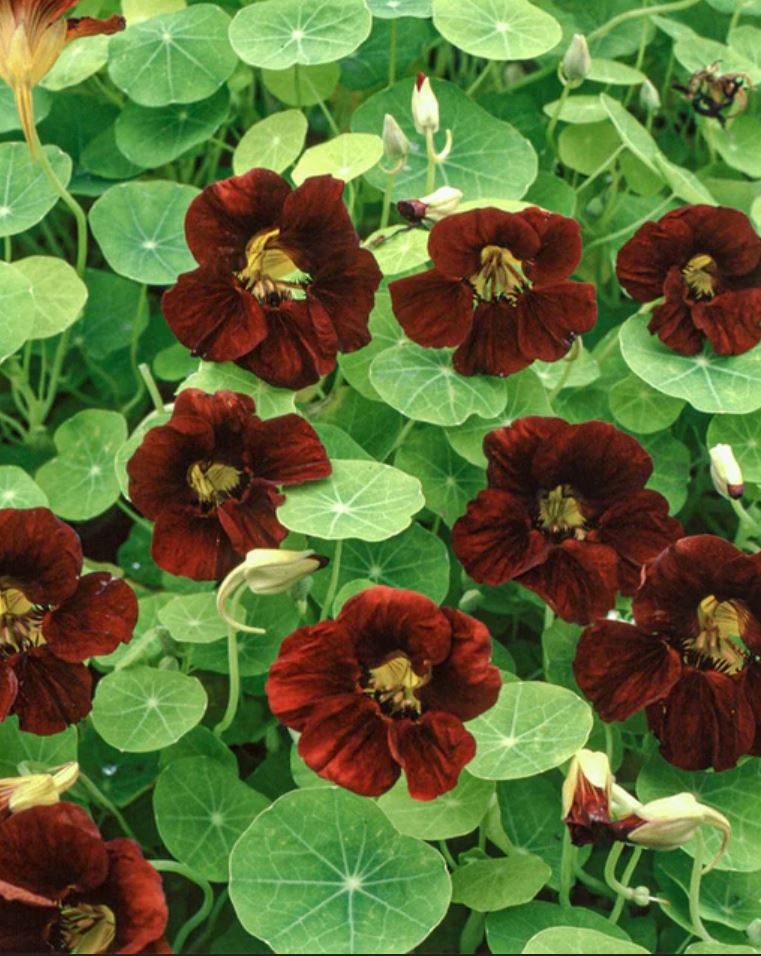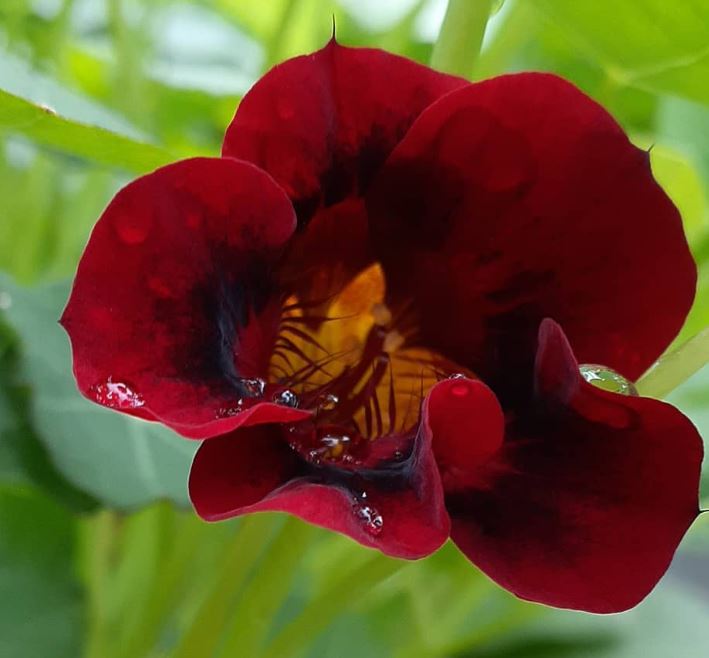Olive Seed Company
Nasturtium 'Black Velvet'
Nasturtium 'Black Velvet'
Couldn't load pickup availability
Black Velvet Nasturtium (Tropaeolum minus)
Black Velvet offers a dramatic twist on a classic edible flower. With flat-faced blooms in deep, velvety mahogany—so rich they appear almost black—this compact variety stands out in garden beds, containers, and bouquets. The flowers are held above soft, pale green foliage, adding eye-catching contrast and elegance.
Easy to grow and long-blooming, Black Velvet thrives in full sun and poor soil, producing blooms steadily throughout the summer. Both the flowers and leaves are edible, bringing a peppery flavour and bold colour to salads, sandwiches, and garnishes. A must-grow for edible gardens, borders, and balcony pots alike.
DETAILS:
QTY: 50
TYPE: Annual
SITE: Full Sun/Part Shade
DEPTH: 1/2-1"
GERMINATION: 7 - 14 days at 16 - 18°C
HEIGHT: 16" - 20” Varies. Trellising is useful for climbing/trailing varieties as they will need support to climb.
MATURITY: 55 - 65 Days
SPACING: Thin to 3-5 plants in hanging baskets or 10" containers.
PINCH: No
HOW TO GROW:
Direct Sow (recommended): Nasturtiums are best grown from seed sown directly into the garden. Sow seeds ½"–1" deep outdoors after the danger of frost has passed and the soil has warmed. Nasturtiums germinate best in darkness, so be sure to cover the seeds well.
Transplant (alternative): While direct sowing is preferred, nasturtiums can be started indoors 3–4 weeks before planting out. Sow into individual pots or cells, covering seeds completely. Keep soil temperatures around – (–). Handle seedlings carefully, as their roots are sensitive to disturbance. Harden off and transplant after the last frost.
Pinching: Pinching is not required, as nasturtiums naturally form a mounding or trailing habit depending on the variety. Deadheading spent blooms can help encourage continued flowering throughout the season.
Soil Preference and Watering: Nasturtiums prefer full sun and average to slightly poor, well-drained soil. They are not heavy feeders; too much fertility can lead to lush foliage at the expense of blooms. Water consistently, but avoid overwatering once established.
Fertilizing: Fertilizing is not required for nasturtiums.
Harvesting: All parts of the nasturtium plant are edible—from the leaves and flowers to the seeds. The leaves and flowers have a peppery taste and can be harvested as needed for fresh use in salads or as a garnish.
Shipping & Returns
Shipping & Returns


-
Free Shipping
Free Shipping on all orders in Canada over $125.00


